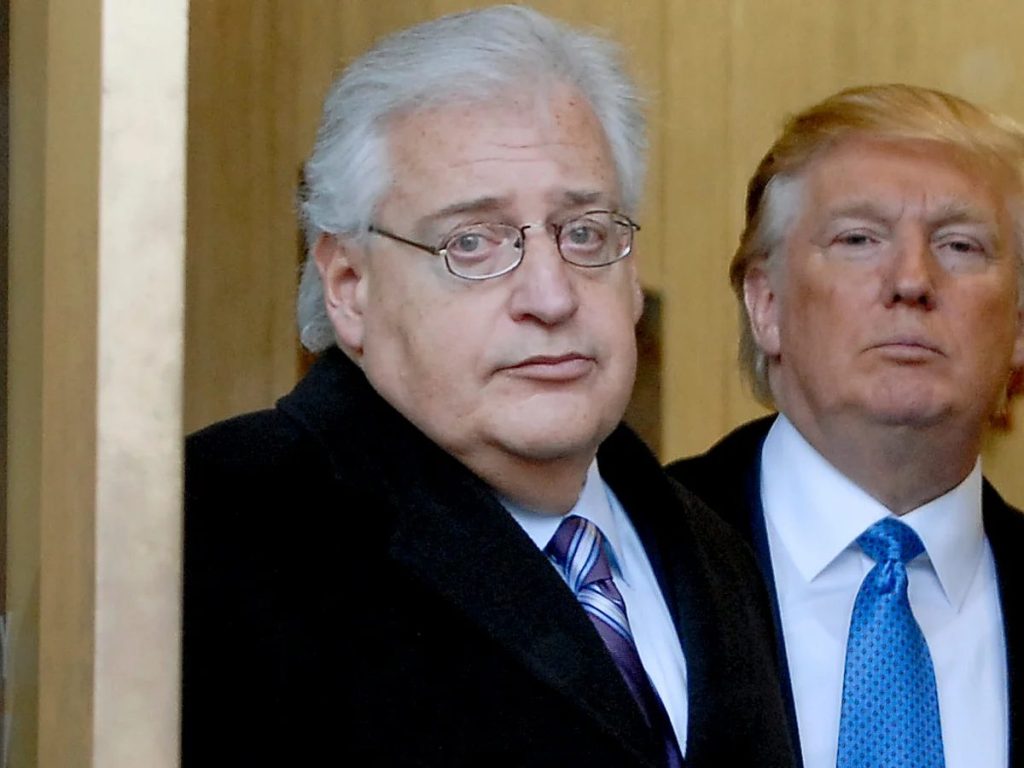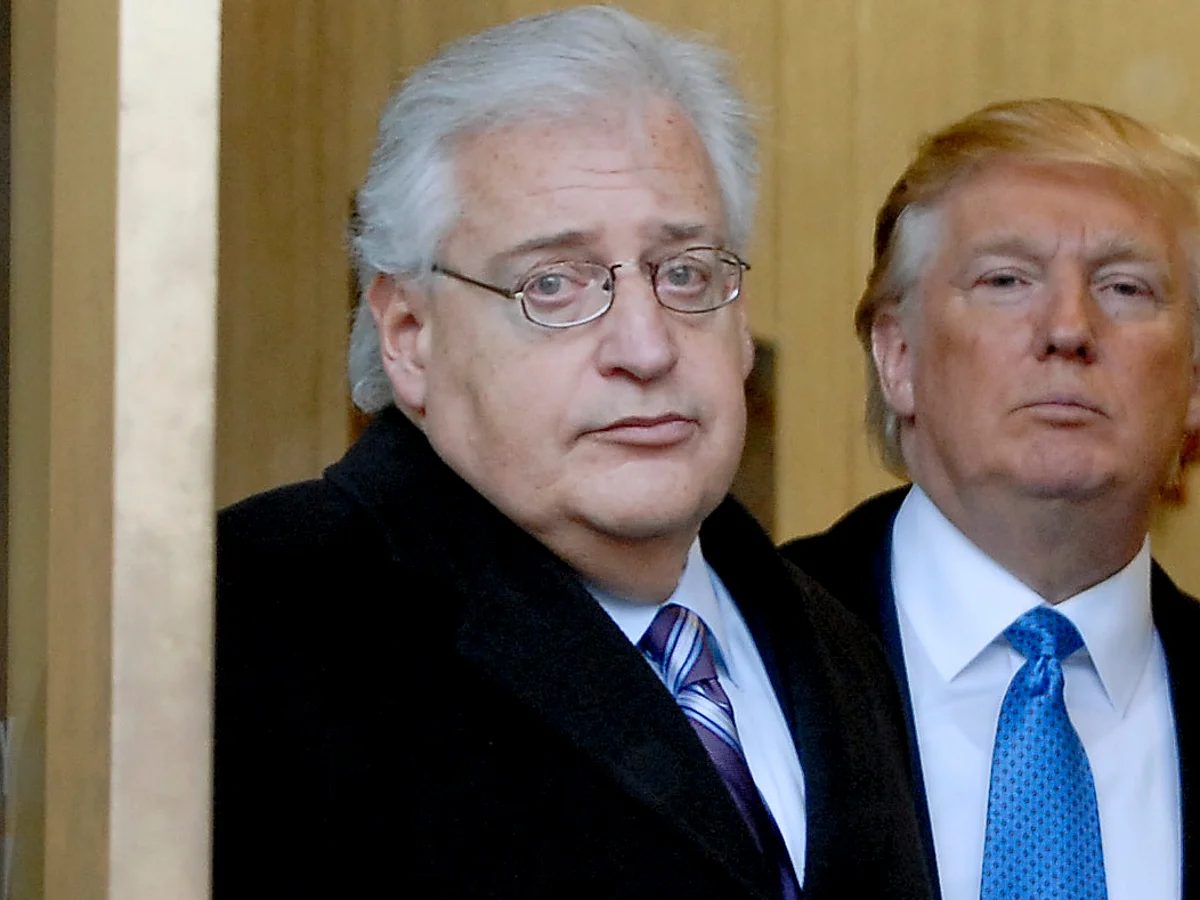A video from 2016 has surfaced, capturing Donald Trump’s pick for U.S. Ambassador to Israel expressing controversial views on Palestinians. In the video, the nominee is heard stating, “there’s really no such thing as a Palestinian,” a remark that has sparked intense debate and concern over the implications his views could have on U.S. foreign policy and Middle Eastern diplomacy if Trump returns to office.

Background of the Ambassador Pick
The ambassador pick, whose name has not yet been officially disclosed in this report, has a history of strong support for Israel and aligns with Trump’s pro-Israel stance, which has prioritized closer ties with the Israeli government. Trump’s past administration saw policies that favored Israel, including the relocation of the U.S. embassy to Jerusalem and the normalization agreements known as the Abraham Accords.
The 2016 Comments and Their Implications
In the 2016 video, the ambassador pick is recorded as saying, “There’s really no such thing as a Palestinian,” referencing the longstanding debate over Palestinian identity and nationhood. This statement is reflective of a view held by some hardline supporters of Israel who argue that Palestinian national identity is a more recent development and contest historical claims to the land.
Critics argue that such comments deny the existence and self-identification of Palestinians, a population with longstanding cultural, historical, and social roots in the region. Palestinian advocates view these comments as inflammatory and dismissive, worrying that such beliefs could undermine diplomatic efforts toward a two-state solution or any efforts to achieve a balanced peace process.
Public and Political Reaction
The resurfacing of this comment has prompted significant backlash. Supporters of Palestinian rights, as well as numerous international and U.S.-based organizations, have expressed deep concern over the potential appointment. They fear that such a perspective could further complicate U.S. relations with Palestinian leaders and other Arab countries that support Palestinian sovereignty.
Meanwhile, supporters of the nominee argue that the statement reflects a historical viewpoint that aligns with a pro-Israel stance, advocating for policies that prioritize Israel’s security and territorial claims. Some see this as an opportunity to continue Trump’s agenda of firmly supporting Israel, regardless of Palestinian national claims.
Potential Impact on U.S.-Israel-Palestinian Relations
If confirmed, the ambassador’s views could potentially steer U.S. policy further toward Israel, with less emphasis on engaging Palestinian authorities or advancing peace negotiations. This approach would likely draw criticism from allies who advocate for a two-state solution, including the European Union and various international bodies. It may also affect relationships with Arab nations that support Palestinian statehood.
Conclusion
The resurfaced comments by Trump’s Israel ambassador pick raise important questions about the future of U.S. involvement in the Israeli-Palestinian conflict. The perspective reflected in the 2016 video could signal a departure from traditional diplomatic efforts aimed at neutrality and peace. As public scrutiny intensifies, the nominee’s stance on Palestinian rights and identity will remain a focal point in discussions surrounding U.S. foreign policy and Middle Eastern diplomacy.








